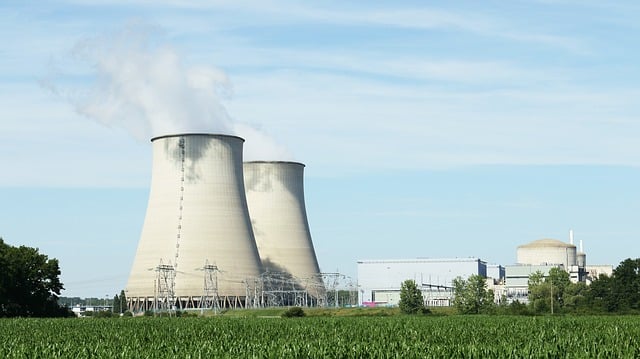Ever since the Manhattan project, which incidentally was set up to produce the first atom bomb to annihilate Germany, man’s trust with nuclear physics and the science behind it had truly jump-started a revolution in the making. It should be pointed out that while several papers were published on the same subject before Einstein came out with this famous formula, the real credit for it should go to Ernest Rutherford, for he was the one who laid the groundwork and Einstein just built on the same. As a result, we have managed to migrate from atom bombs and have started harnessing nuclear energy for powering up our homes. Nuclear energy is more preferable since it produces clean energy sans any emissions or noxious fumes and we do not have to burn a vast amount of fossil fuels to power up the plants. Given the fact that we happen to be poised on the brink of a crisis thanks to global warming and the resultant build-up of greenhouse gases in our atmosphere, more countries have initiated moves to set up more nuclear power plants in their quest for clean energy. This is why we need to take a closer look at some of the positive and negative effects of nuclear energy.

Positive impact of nuclear energy:
Low pollution: Compared to traditional power plants, several studies have validated the claim that nuclear energy produces far fewer emissions than the traditional power plants emit. As a matter of record, the amount of greenhouse gases emitted by power plants has reduced by half due to a large number of nuclear power plants that are currently operational. This is why it makes more sense for developing nations to opt for nuclear energy as a dependable source for generating clean power.
Low operating costs: Nuclear energy produces cheap electricity and nations that produce power using nuclear energy can pass of these benefits to their consumers. Nuclear plants come with low operational costs; apart from the initial investment in setting up the plant and the cost of acquiring the required uranium which is not much, the overall cost is several times less than what it would take you to operate a traditional power plant. Moreover, nuclear power plants can operate for 40-60 years, so that’s another plus.
Reliability: Given the current rate of consumption, we should be able to run our nuclear power plants for 80 to 90 years depending on our stockpiled of uranium and that’s just the ones that we have stockpiled at the moment. Apart from this, nuclear power plants are designed to operate under any condition and can do so even under the most challenging of conditions, including a storm.
Negative impact of nuclear energy:
Nuclear waste: Nuclear plants often produce nuclear waste when generating nuclear fuel according to conservative estimates, it is expected that the total amount of nuclear waste generated each year amounts to 2000 metric tons. Nuclear waste is extremely radioactive and can generate large amounts of heat; moreover, such waste can impact the environment and affect both flora and fauna, thereby making it all the more dangerous.
Environmental impact: While nuclear plants produce clean energy with nuclear waste being stored safely, the same cannot be said about the process of mining and refining Uranium. A recent study highlighted the fact that despite several precautionary measures being adopted, mining uranium has led to widespread environmental impact, mainly affecting local water bodies located in and around where Uranium is mined.
Accidents: A nuclear accident is just about the worst disaster that one can imagine because the fallout would devastate the immediate area and continue to resonate for years. For example, the Chernobyl incident which occurred in 1986, devastated the immediate area exposed several to high dosages of radiation and impacted flora and fauna. Its effects can still be observed today, three decades post the incident.
These are some of the positive and negative effects of nuclear energy; given our current constraints and our urgent need for clean power, nuclear energy is part of our reality now. As it stands, more nuclear plants are being commissioned each year. But it is obvious that we have to take effective measures to both minimize risks and prevent accidents so that the chances of another Chernobyl taking place is extremely minimal at best.
- Tulip Mania – The Story of One of History’s Worst Financial Bubbles - May 15, 2022
- The True Story of Rapunzel - February 22, 2022
- The Blue Fugates: A Kentucky Family Born with Blue Skin - August 17, 2021
